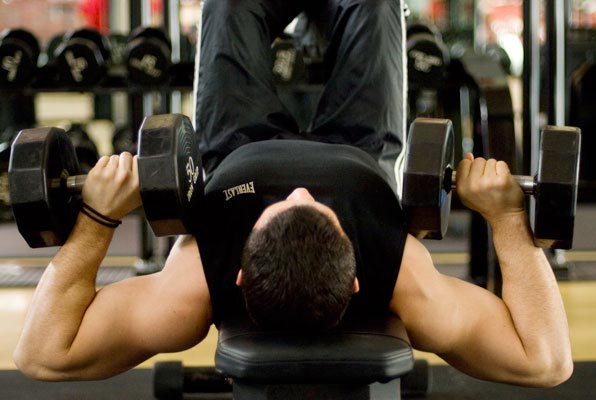Staying Stronger And Preventing Injury With Strength Training
Strength training goes hand in hand with cardiovascular exercise for a healthy body. Muscles can be conditioned by using any equipment that produces resistance against the muscles. The resulting muscle tone is attractive and beneficial for either a male or a female.
The most obvious benefits of a consistent strength training routine are stronger muscles and a fit physique. This muscle build-up counteracts the muscle loss that occurs in adulthood. The increase in muscle mass also speeds up the rate at which your body consumes calories, even at rest.
As a side benefit to having stronger muscles, you will also strengthen your ligaments and bones. Your joints will also benefit as they gain more flexibility and integrity due to the supportive muscles surrounding them. You will ultimately be more prepared to handle just about any physical activity without giving it a second thought.

While it is tempting to start throwing weights around like Hercules, rein yourself in. Every move you make needs to be performed with control. Use muscles, not momentum, to complete a movement. Count to two as you contract your muscles, tighten at the top, and count to four as you release. A common mistake for beginners is forgetting to breathe. Suck it in, let it out, keep the breath moving.
Exercises are broken into reps and sets. A rep, or repetition, is one complete exercise, such as one push-up. You perform a set by completing a number of reps as a group. Doing two sets of nine reps of abductor presses means you did nine presses, took a break for a minute or two, and did nine more.
Choose a weight that allows you to comfortably perform eight reps, but no more than 12. Perform eight reps, rest for a minute or two, perform another set, rest, and perform a third set if desired. If you prefer to really push, pick a resistance level that only allows you to finish eight reps. Maintain proper form while you pump out as many reps as you can in a single set. Don’t do any more sets. When you can do 12 reps using either method, increase the weight slightly during the next workout.
Work all the major muscle groups to achieve proper body form. Some exercises and equipment will work a variety of muscles at once, or you can perform a series of exercises to hit many muscles.
Working a different group of muscles each day will allow the group from the previous day to rest and recover. Make sure you don’t work on any particular muscle group more than every other day.
The muscles in the upper body include the arms, upper back, mid-back, shoulder caps, and chest muscles. Lateral pull-downs are popular at the gym, as are bicep curls and tricep pull-downs. Use weights or a resistance band to get the same effect at home.
The lower body workout will cover the butt and legs. Leg presses, extensions, and curls are common gym exercises to work the legs. At home you can lie on your side and do leg lifts, or try wall sits, squats, and lunges.
To tighten your midsection, trainers are still recommending the crunch. Crunches are more challenging on an incline. Your trainer can show you how to alter the traditional crunch to reach the full length of the abdomen. Many of the exercises you will be doing for the rest of the body will also strengthen your lower back.
Strengthening your body is a process during which you will see some rapid results intermingles with periods of no apparent improvement. Switch your routine as needed to get through the plateaus. Keep yourself moving by reminding yourself of how far you have come and how much better you feel. You will never regret the time dedicated to improving the health and condition of your body.

